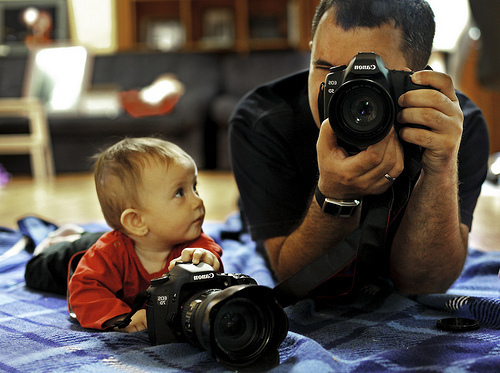Being a husband and a father, my attention immediately turns to my family. And, in a pre-apocalyptic world, I’d definitely focus on spending as much time with them as possible. I imagine that we’d pack up and find happiness in a warm, sunny location near the beach–a place we all love. Maybe a stop at Disney World–assuming it’s still in operation. (Surely nothing would be sadder than an abandoned Disney World–well, maybe the end of the world. But, I digress.)
I think a key challenge would be how to discuss these events with my kids. You won’t find this entry inside Stuff Every Dad Should Know, but, given the circumstance of this site, I feel compelled to offer some thoughts on this topic.
How to Speak to Your Children About the Upcoming Destruction of Earth
I bet you thought that “The Sex Talk” would be the most difficult discussion you had with your kids, right? Not when an asteroid is heading straight for planet Earth. When speaking to your children about the end of the world, it is extremely important that you consider their ages.
– 0 – 4 years old: At this age, kids are very focused on their needs and the immediate world around them. They typically don’t have the capacity to view the bigger picture. So, unless they ask you about it, I’d suggest you maintain their innocence and let them continue thinking everything is OK.
– 5 – 9 years old: At this age, kids may be curious. If you pull them out of school, they will wonder why. If you leave them in school, someone will bring it to their attention. So, despite your best intentions, they will probably find out about the impending disaster. At this point, I’d suggest asking them what they know or what they’ve heard. Then, allow them to ask their questions. Let that frame the discussion as you consider how much you truly want to share.
– 10 – 18 years old: At this age, kids will be aware of what is happening and will most likely understand the ramifications. You and your children will likely experience a similar range of emotions. It’s natural to feel sad, angry, afraid or rebellious. Expressing your emotions and sharing your feelings will set an example and may help your children share their feelings and cope with the situation.
You and/or your children could also seek out and speak to additional resources including friends, family members and religious advisors.



